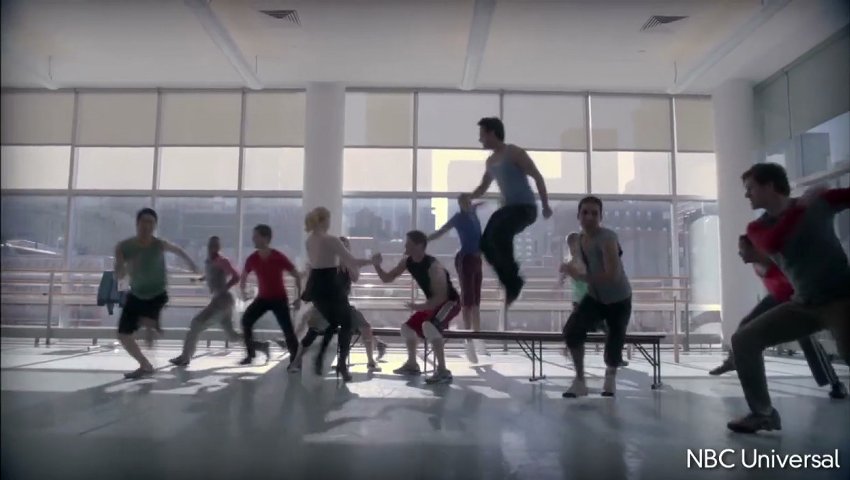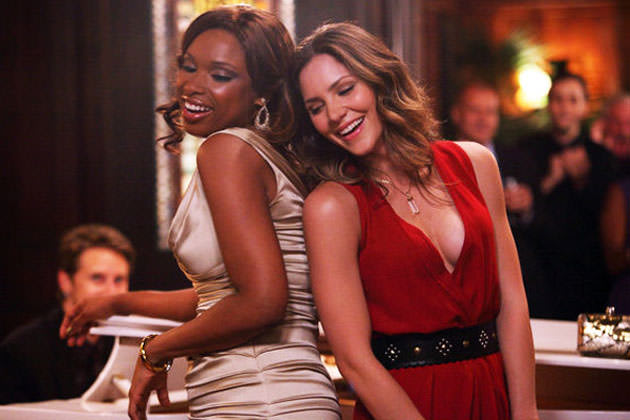 |
| Season 1 Marketing |
.jpg) |
| Season 2 |
This show has become one of the most vibrant "Hate-Watch" Shows in recent memory. This has inspired a spate of quite interesting commentary on the phenomenon and the show itself.
"Hate-watching is the act of watching a show that you claim to dislike with the sole purpose of mocking it. With the recent return of Smash, a highly mockable melodrama about the behind-the-scenes happenings of a Broadway production, hate-watching seems to be a hot button term in TV writing, but is hate-watching even a real thing? Or do we just refuse to admit that we like shitty things?"
Jezebel took on the question of Hate-Watching
I for one love the snarky critique of a piece of work often more than the work itself. I couldn't do my job if I couldn't find ways to enjoy things that aren't masterpieces. New York Magazine's Gossip Girl Recaps (With New York Reality Indexing) got me through seasons 1-6 and made the show required watching so that I would at least be in on the best jokes.
This type of watching is genuinely social in a way that is very modern. The question of whether or not you like a show is almost immaterial if you LOVE the conversation around it and it brings you joy. And Lord does gossiping about fictional characters bring joy. The trouble is, sometimes stories are bad, sometimes they're so bad their good, and sometimes they're genuinely awful and defy even ones ability to mock them. The Internet helps, there are some gifted comedians out there who could mock the least compelling things imaginable and be charming, but that isn't something that necessarily means that it should be an aspiration for a show to be Hate-Watched.
 |
| Season 1 Marketing |
So what does it mean for a show that was notionally about Theatre; and about Theatre Production, sort of about Marilyn Monroe and sort of about an American Idol star and still trying to pry a Broadway Theatrical Production in real life out of the clutches of whatever it is that is going on here.
The best deconstruction I've seen of the situation in the real life production I've seen comes from Buzzfeed, that put out a delightful long read about the behind-the-scenes drama of the behind-the-scenes drama that led to the creatives changes between season 1 and season 2.
On Buzzfeed:
"How does a lovingly looked-after show with such high stakes for all involved become a joke? Smash is a case study: in how megalomania and television can clash unproductively; in how high expectations can crash immediately; and in how intense network and studio oversight can result in a paranoid show creator who causes workplace misery and, most importantly, a bad TV show."
You should read the whole thing, it helps understand a lot of the tension that is clear between the two takes on the concept that are clearly, quite diverse.
Smash isn’t just shallow, selfish, stupid, and narcissistic:
it’s a hundred percent sure that everyone else in the world is, too.
The other commentary that you absolutely must read on the subject of Smash is from Chris Braak, who I am quoting above and below:
From Braak's Excellent article "On Smash, and why it is the WORST."
Or else take Jennifer Hudson’s advice to Katherine McPhee, about her burgeoning career as a Broadway star: “Protect the work,” she says. “Someone’s always waiting to take you down, but if the work’s good, they won’t be able to.” If you cared about the work, then there might be times when you sacrificed of yourself in order to improve it: you might say, for example, “This show is good, but it would be better if it starred you, Megan Hilty,” and then you’d back out of the production. In that sense, if the work’s good then it doesn’t matter if someone else takes you down, because you’ve contributed to something that is greater than yourself, and it’s impossible for someone to take that away from you. But Smash does not draw a distinction between “the work” and “the star”. What Jennifer Hudson means by “the work” is “your meteoric rise to fame and fortune”; there’s nothing ennobling about this at all, nothing that even resembles the need for personal or artistic expression. Smash is about getting famous, full-stop.You may remember Braak from such elegant diagrams as The Perils of Empowerment if you read me regularly, you should be reading him as well. So, it seems clear that the show will be moving from being about "producing a show" (if it ever was) to "stories about people who produce shows" and mores the pity. If there's anything we could all use it's a genuinely interesting behind-the-scenes show that isn't entirely about sex or violence. (Who wants to bet me that a gun shows up on screen in this season?)
Whether it’s because the show is afraid that genuinely grappling with the human condition would be off-putting to the coveted 18-35 year old demographic, or because the people working on it do not themselves have any particular interest in art, the show is utterly disinterested in anything except the most banal aspects of Broadway. This kind of shallowness colors everything about the show, and it’s what makes the show ultimately toxic. That’s because Smash isn’t just a commercial enterprise on its own – tacky, yes, but everyone’s got to eat – it’s an enterprise that characterizes everything else it touches as equally hollow and grasping. It doesn’t just fail to understand the theater, or the people who work in it for reasons other than “I want to be a star”, it grossly misunderstands them, describes them according to its own distorted sense of self, and then parades around presenting them to the world.
 |
| Season 2 |
Mothers don't let your daughters grow up to be Gossip Girls.
While the character Ivy was the sex pot last season, it's clear that an early departure in the new showrunner's aesthetic. The new showrunner is making a concerted effort to go after a different demographic market with his CW approved vision of New York Glamour. Fame is central and everyone is considerably more sexed up than in the previous showrunner's vision.
Most visibly the difference in the Katherine McPhee character, for a reasonably conservative mid-western ingenue, in contrast to the seasoned Broadway vet, Meghan Tilly.
 |
| Katherine McPhee a Prim farm girl who covers up in Season 1 |
 |
| Season 2 sees McPhee in a "Serena VanDerWoodsen" Cut Gown by the 30 minute mark. |
With any luck, we'll see scandals that inspire wit from the characters, who have often been one-note charcatures of desperation, earnestness or naivete.
"Did you Dress Warmly for Your Trip to the Moral High Ground?"What other stylistic changes will we see? My money is on "every episode contains at least one gala event that brings all the characters together in formal wear", "Fish out of water from Brooklyn" (who as a note, was introduced in episode 1) and "everyone ends up living together as a couple at least once before season 3". Other bets are in, including a pool on cancellation as the premiere was down 71% from the first season premiere how much time will the network give this show and how much time does the new showrunner have to turn it around... and will it be a hit among its new demographic target or will it bomb?
-Derek, the Sexual Predator Director


No comments:
Post a Comment